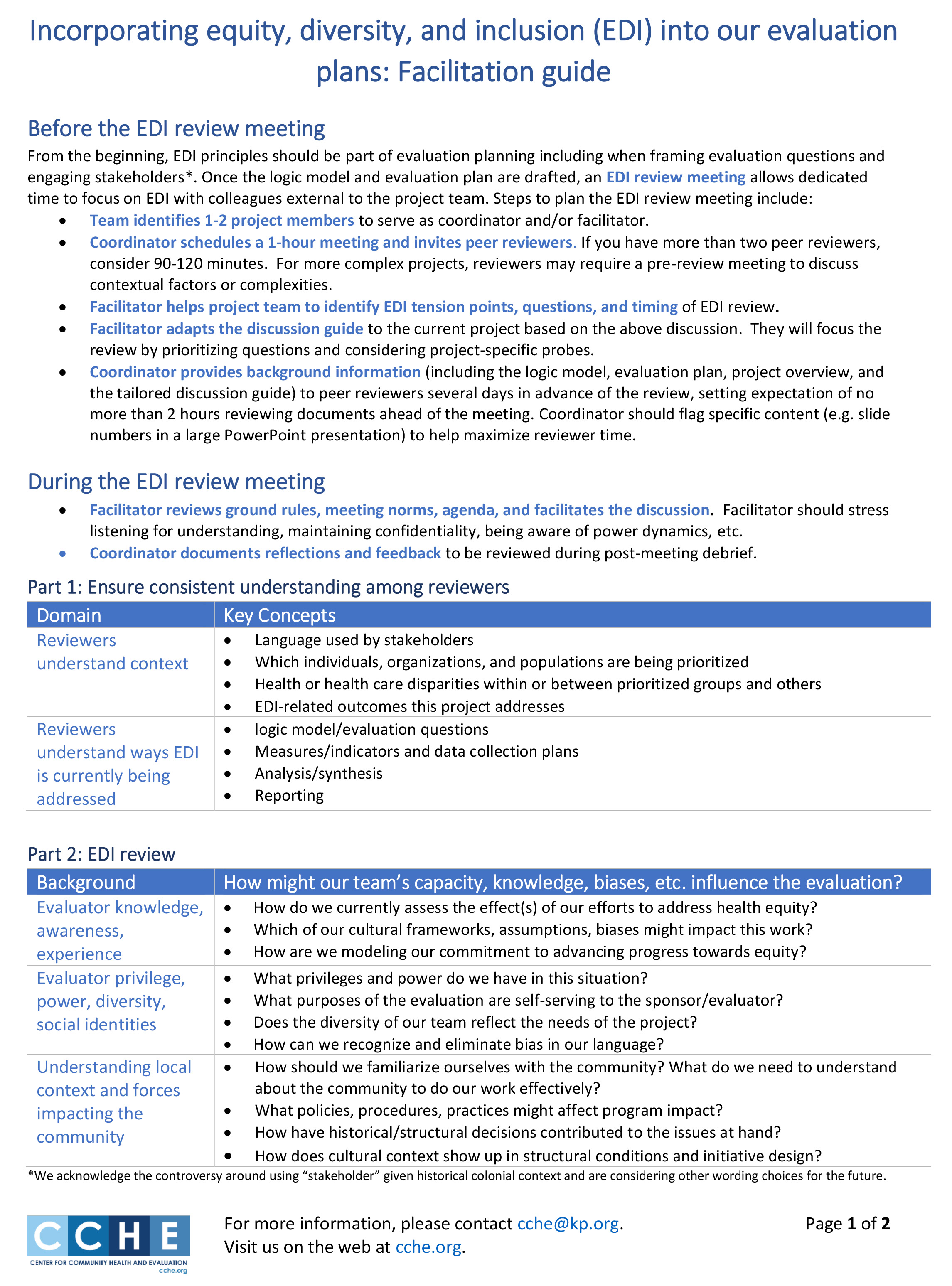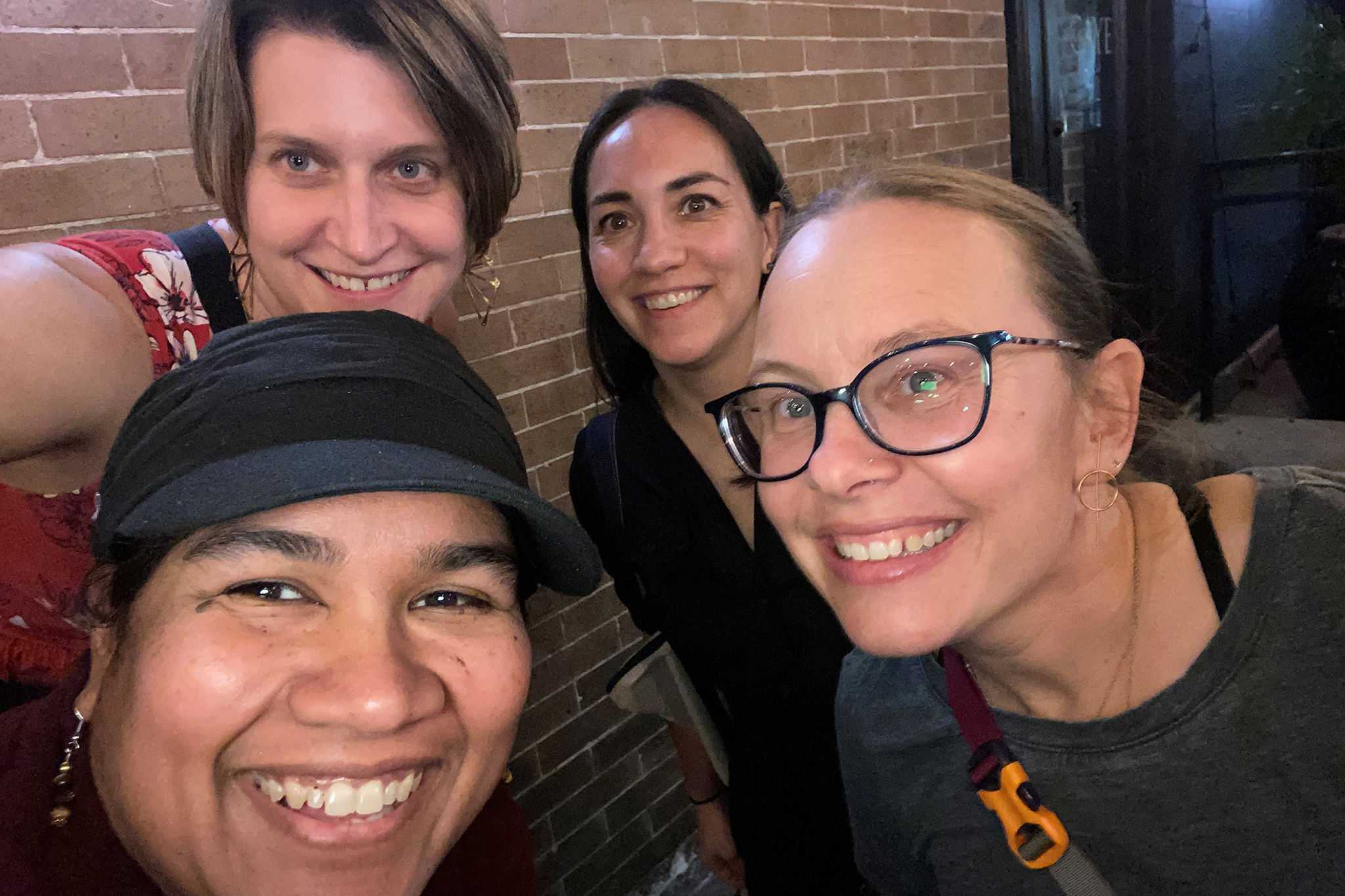Equitable Evaluation Discussion Guide
We use this tool to more intentionally incorporate equity in our evaluations
Centering equity in evaluations is important for evaluators, funders, and the communities they serve. Community initiatives and interventions often articulate equity as a goal or a key outcome without clarifying how the initiatives and interventions will advance equity or measure progress towards that goal. While equity is implicitly embedded in CCHE’s mission and values, we haven’t always explicitly or systematically applied equity principles.
CCHE developed a discussion guide to use as part of our evaluation planning process to incorporate equity more intentionally into our evaluation practice. The goal is to standardize and socialize consistent integration of equity, diversity, and inclusion (EDI) principles into all our evaluations.
How it works: Each evaluation project team uses the discussion guide by asking one or two CCHE peers to review a draft evaluation plan and meet with the project team to share their perspectives and questions and discuss how well the evaluation plan articulates the EDI principles. The project team then reflects on the discussion and generates next steps.
What we’ve learned
Through implementing the discussion guide, CCHE staff have learned the following:
- Engaging peers external to project teams prompts us to diversify sample pools, segment data differently, think more critically about qualitative data collection and analysis, and provides opportunities for us to strengthen our approach to evaluation.
- Incorporating new perspectives from reviewers working on a wide range of evaluations increases capacity across the organization as our evaluators learn how other project teams integrate equitable evaluation practices.
- Developing a broad-based discussion guide works more effectively than a prescriptive checklist. A discussion guide prompts CCHE evaluators to:
- Consider equity from many angles
- Thoroughly discuss assumptions and implications
- Clearly articulate the ways in which our evaluations are not able to account for equity due to timelines, resources, participant burden, or other factors.
- Transparently and explicitly stating how equity is, or is not, addressed in an initiative and evaluation can:
- Help strengthen relationships with funders and community participants
- Inform future investments and evaluation approaches
CCHE’s discussion guide is a work-in-progress and is informed by the work of our peers and partners. The guide provides steps, roles, and language for inviting participants to share their experiences and approaches to strengthening equitable evaluation practices. We invite others to use it and share back their reflections. We are committed to continually improving this guide and employing additional tools that support centering equity in evaluation.
Click HERE to view the Incorporating equity, diversity, and inclusion (EDI) into our evaluation plans: Facilitation guide



